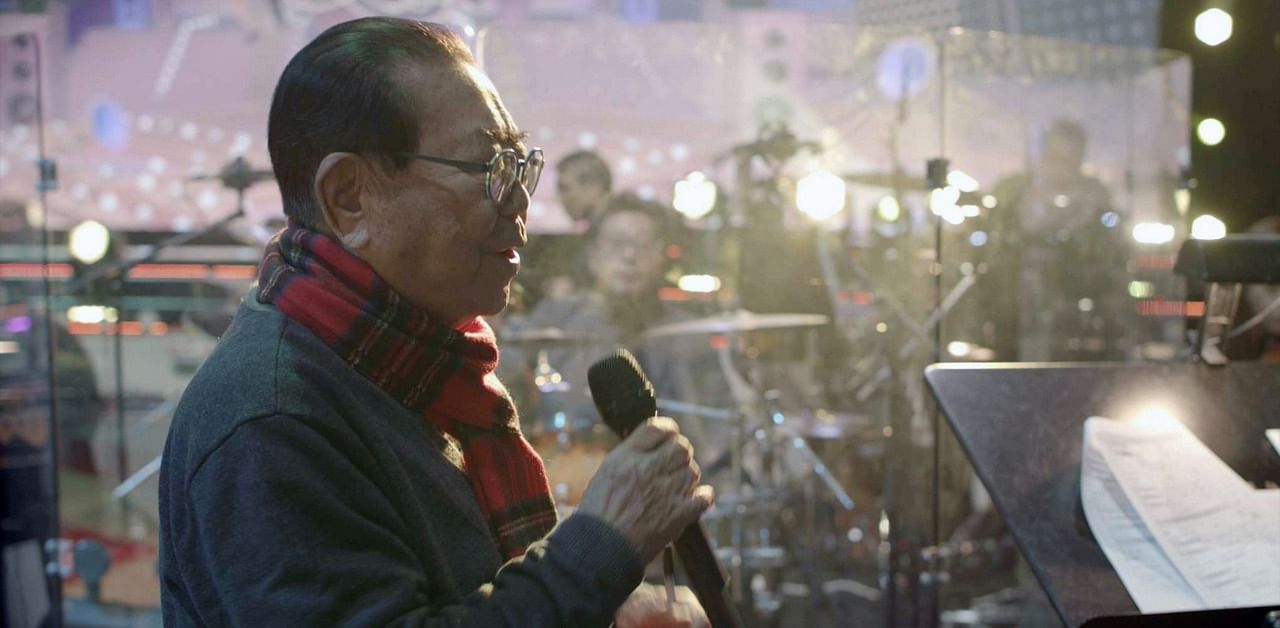
At the age of 93, the arc of South Korean television host Song Hae's life mirrors that of his country, from Japanese colonialism to war to cultural rise, chequered by suffering and loss.
Song is known across the South as the host of "National Singing Contest", a talent show broadcast from a different location each week that has been running for 40 years and remains popular.
His warm and funny personality has earned him a huge fanbase, from children to teenagers to the elderly, and the locations named after him include a street in Seoul and a park in Daegu.
But Song was born in today's North Korea and was among the millions of people whose families were left divided by the Korean War -- which he played a part in ending when he relayed the order to cease fire.
"My generation lived in very hapless times," Song told AFP.
His extraordinary life is featured in a documentary that has its world premiere at the Busan film festival, Asia's largest, on Monday.
Directed by the award-winning Jero Yun, Song Hae 1927 focuses on Song's private grief and the turmoil of his family history -- as well as being separated from his parents and siblings by the war, his only son was killed in a traffic accident at the age of 23.
"Mr Song is a survivor," said Yun, who has previously tackled themes of migration and North Korean defectors.
"My question for this project was, how do we deal with the holes in our mind when we lose someone?"
Born as Song Bok-hee in 1927 in Jaeryong, in what is now the North, Song grew up during the Japanese colonial era, when he remembers being beaten for speaking Korean and spending gruelling hours cutting hay to feed Japanese cavalrymen's horses.
"I still have a scar on my leg from those days, from cutting myself while using a sickle," he said.
He studied singing at music school and once hostilities broke out, he regularly stayed away from home to avoid being conscripted into the North's forces.
On one occasion his mother called him back as he was leaving. "She told me: 'Be careful this time.' So I just told her: 'I'm coming back in two days'."
It was the last time they ever spoke: with North Korean forces advancing he sought shelter on a US warship evacuating civilians to the South.
He spent most of the three-day journey staring at the open waters, not knowing if he would ever be able to return home, and later renamed himself Hae -- meaning "sea" -- to remember the voyage that forever separated him from his family.
In the South, Song became a military signaller and says that he and his colleagues later transmitted the encoded message that ended hostilities and sealed the division of the peninsula.
"We later learned it meant 'As of 2200 on July 27, 1953, fighting on all front lines will cease'," he lamented.
"It was me who sent it, and even now I still can't return."
In the subsequent decades, South Korea has undergone an economic boom while enduring authoritarian military governments from the 1960s to the 1980s -- Song was once interrogated for three days for complaining about hardships.
The country has gone on to establish itself as a vibrant democracy and a technological and entertainment powerhouse.
Song made a career as a singer, comedian and television personality, and spent 17 years hosting a radio show doing traffic reports until his son Chang-jin was killed in a motorcycle crash.
"I just couldn't say 'be careful of car accidents' on air after losing my son that way," he said.
In 1988 he took over as the "National Singing Contest" host -- somewhat incongruously given that he had discouraged Chang-jin from pursuing a musical career.
At the time professional singers like him were looked down on socially, and he followed the example of his own father, who had also sought to dissuade him.
"It's a sin for a father to not understand what his child is going through," he said, wiping away tears.
Song has since hosted almost 1,500 episodes of the show from every part of the South, and one instalment in Pyongyang, during the "Sunshine Policy" rapprochement of the early 2000s.
But he was unable to visit his home town, pay his respects at his presumably long-dead parents' graves, nor meet the sister he had left behind, and cried throughout the journey back to Seoul.
Unresolved feelings of sadness and resentment against injustice, known as "han", are a longstanding theme in Korean culture and literature.
Song said: "Even an entire day would not be enough to count the things that I find to be filled with han."